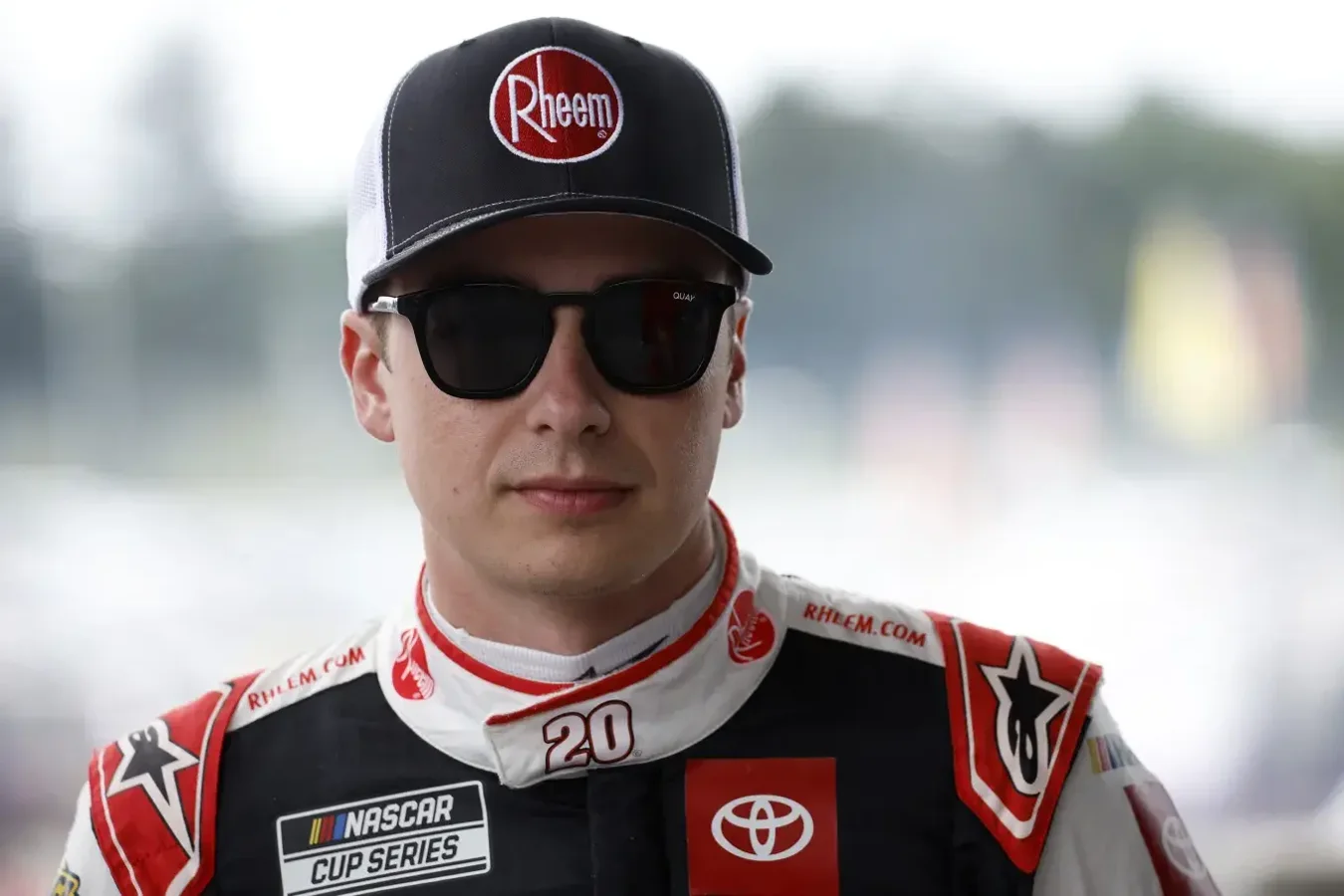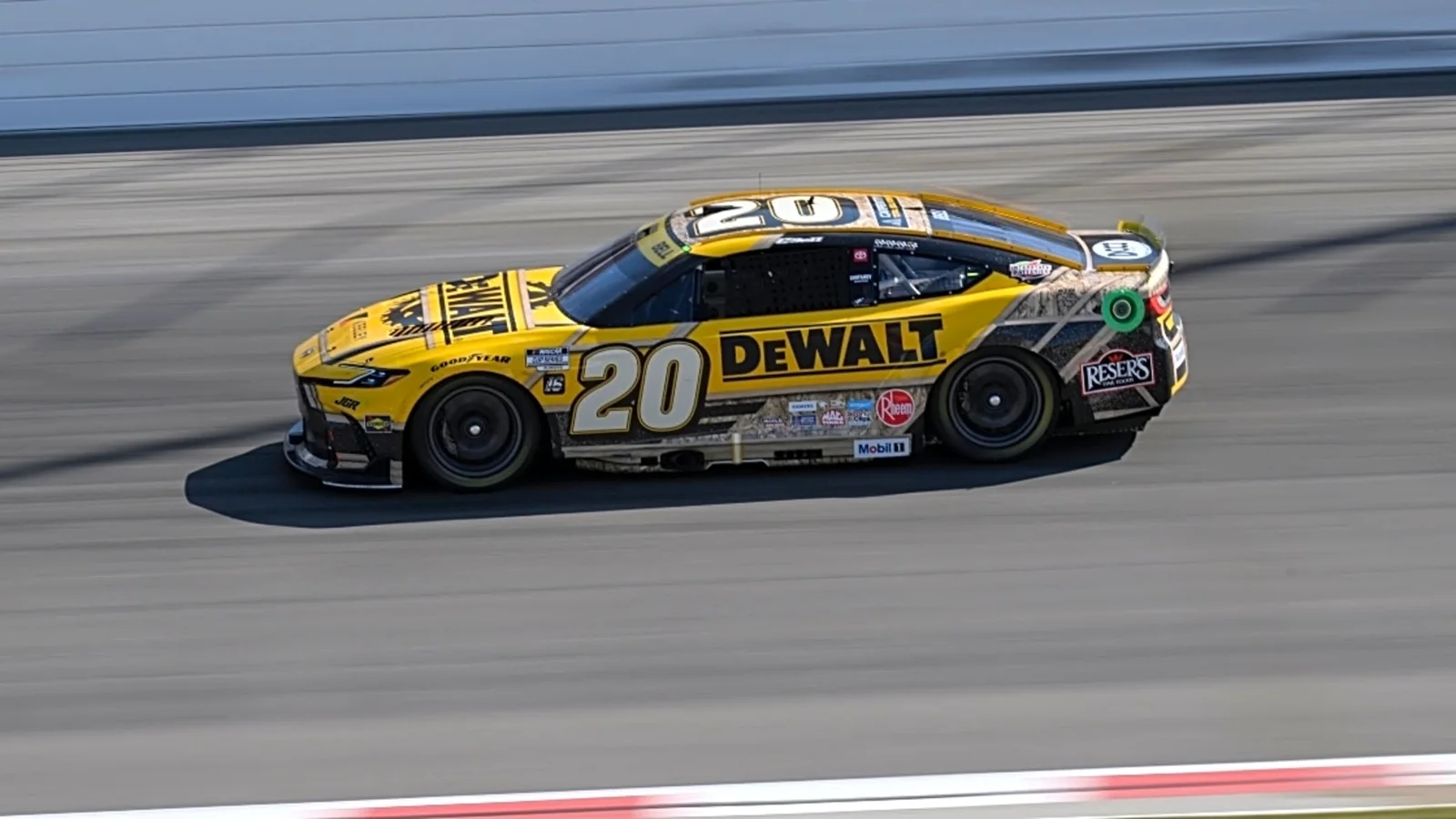Christopher Bell‘s viral radio rant captured the attention of NASCAR fans after he aired his emotions over his team’s performance at Gateway, highlighting the immense pressure that drivers face during each race. The incident thrust the Christopher Bell viral radio rant into the spotlight, sparking widespread conversation about athlete expectations and the mental toll of high-stakes competition.
An Unexpected Outburst at Gateway Captivates Fans
Known for keeping his composure, Christopher Bell surprised the racing world with a heated tirade following his seventh-place finish at Gateway. Despite usually displaying a calm presence, Bell’s emotional radio exchange reflected how close competition and team dynamics can lead to breaking points. His outburst reverberated among racers, analysts, and fans alike, who are now discussing the realities athletes face under constant scrutiny on and off the track. Bell’s reaction, in this instance, became an unmistakable reminder of the often unseen emotional conflicts within elite sports.
Bell Addresses the Fallout After His Radio Meltdown
Bell addressed his radio meltdown during an appearance on NASCAR’s The Day After following a major victory at Bristol Motor Speedway, offering a glimpse into his feelings about the viral moment.
“I feel bad that it went viral. I didn’t intend for it to go viral,”
Christopher Bell, Driver, admitted, expressing regret over the events that unfolded. The frustration traced back to what Bell perceived as a lackluster reaction from his team regarding a finish he believed should have been better, given the car’s strong performance that day.

The intensity of his comments increased as the interaction with his crew chief unfolded over the team radio. Adam Stevens, Crew Chief, responded to crossing the finish line with,
“Checkered flag. P7. That’s what we needed today,”
while Bell’s reply cut to the core of his feelings,
“We just f*ing ran seventh with the best car on the track! Every f*ing week, it’s the same s**t,”
Christopher Bell, Driver, replied, making it clear that mediocrity did not meet his expectations, especially as other competitors like Denny Hamlin and Chase Briscoe took control of the race.
The Broader Conversation: Pressure and Humanity in Motorsports
Christopher Bell spoke candidly about the emotional side of the sport, stating,
“There’s a fine line we walk,”
Christopher Bell, Driver, explained. He expanded on the pressures unique to racing, saying,
“You’re human. No other professional sport has microphones inside the helmet. I bet you NFL wide receivers and NBA players have similar emotional outbursts,”
Christopher Bell, Driver, observed. This perspective brought further attention to the unique exposure drivers have, with every reaction broadcast to the world, while reminding fans and the NASCAR community that beneath the helmets, drivers are subject to the same human limitations as athletes in the NFL, NBA, or any other high-profile sport.
After the race, Bell adopted a quieter tone when speaking to the media, reflecting on the missed opportunity of not capitalizing on his toyota/”>Toyota Camry XSE’s potential. His reaction—shared openly—highlighted the tension that exists in racing teams, where individual goals and group dynamics often collide, shaping both the triumphs and struggles of drivers at Adam Stevens’ team and rival organizations such as Ferrari.
Implications for Teams and the Future of NASCAR Races
The reaction to the Christopher Bell viral radio rant has extended far beyond a single event, with pressure mounting on NASCAR teams and organizations to acknowledge and address the intense environment their racers navigate daily. Questions are being raised within the sport’s community regarding how drivers, like Bell and his teammates, respond to constant stress, and whether teams need to rethink their support mechanisms to maintain both competition and mental well-being.
This incident, involving other key figures and competitors, underscores a recurring challenge in all high-performance sports, as fans and analysts speculate about whether this will drive teams toward new approaches in handling internal frustrations or become just another memory in NASCAR’s long history. For drivers such as Christopher Bell, Chase Briscoe, and Denny Hamlin, the expectation to deliver isn’t just about crossing the finish line—it’s about managing the ongoing battles that happen both on and off the track.
Ultimately, Bell’s unapologetically honest outburst provides a rare window into the heart of a relentless competitor. As NASCAR moves forward, the fallout from this viral moment will likely inform discussions not only about race strategy but also about the human cost behind the chase for victory.
